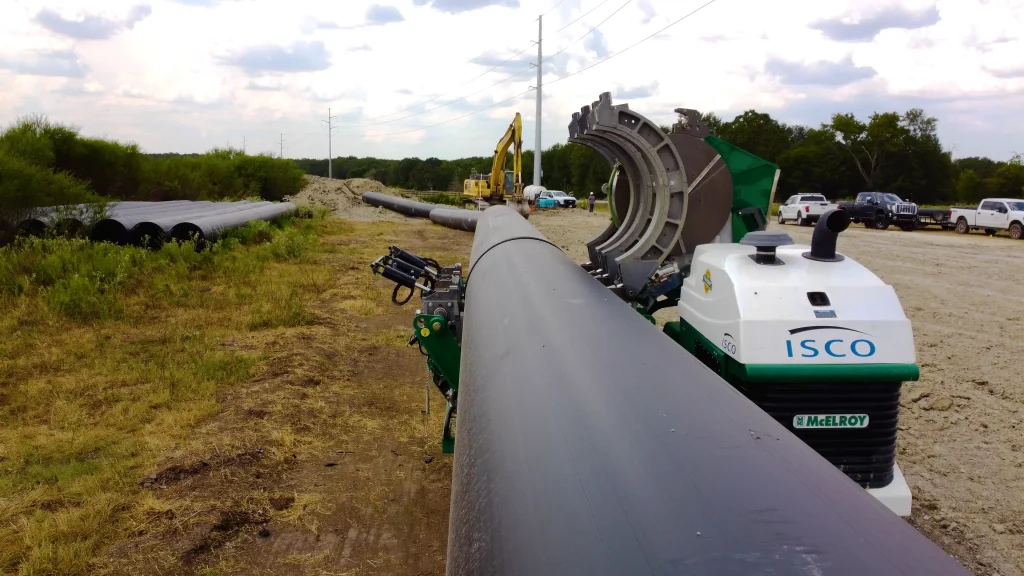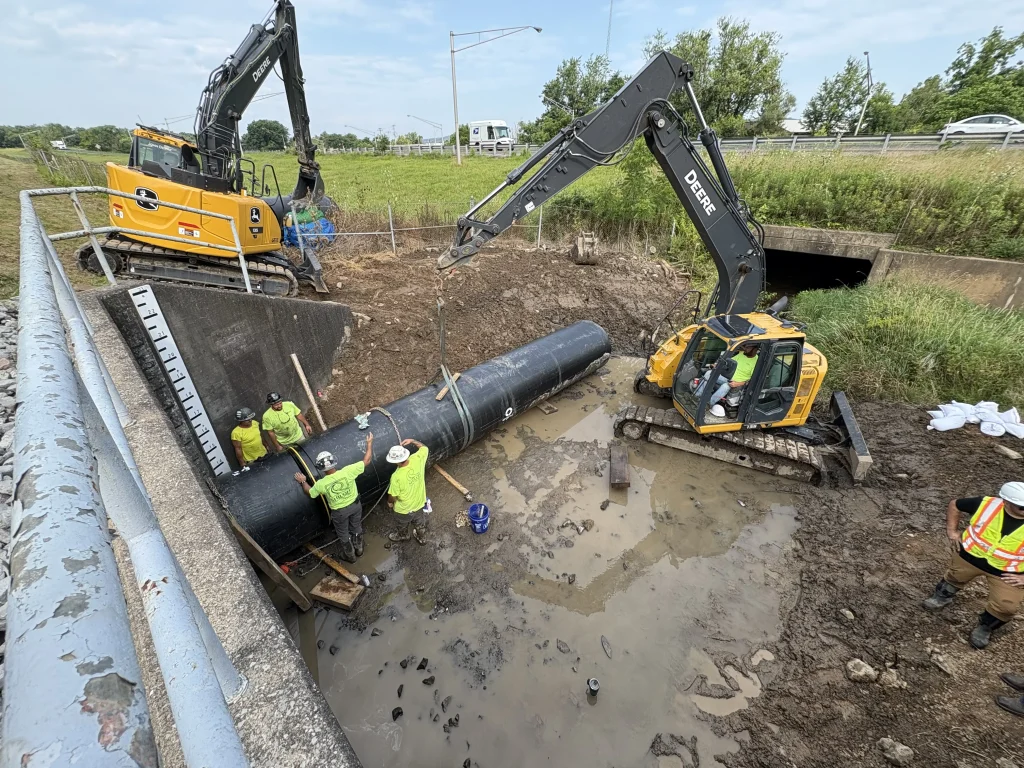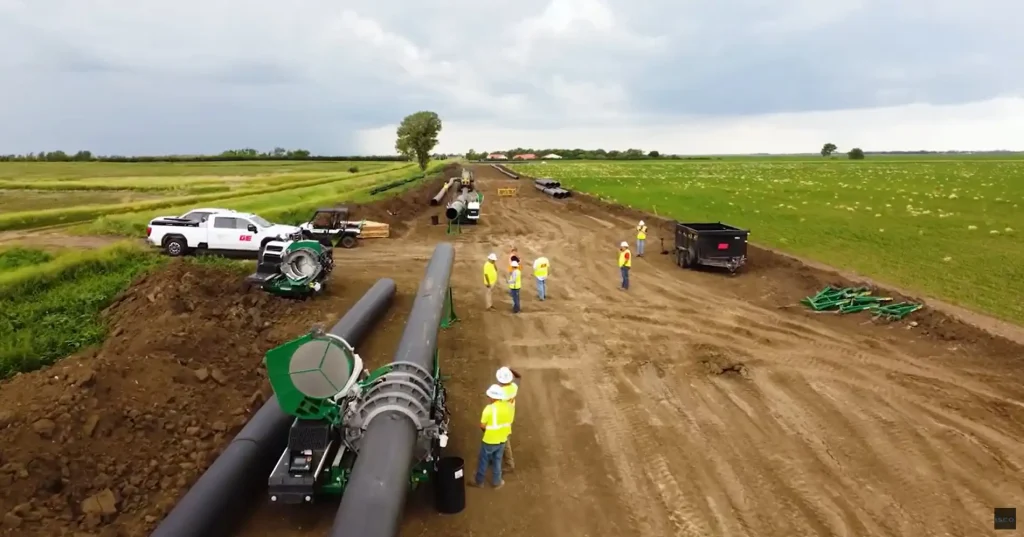Resources
Field Reports
HDPE Pipe Replaces Steel in Industrial Piping System Upgrade
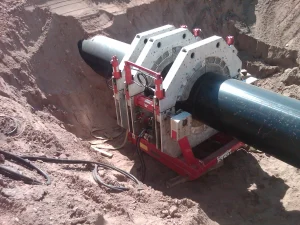
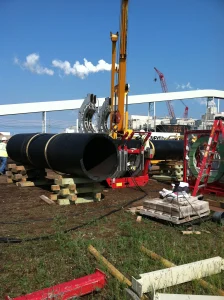
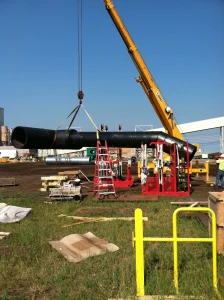
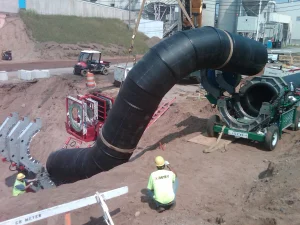
Corrosion and Maintenance Costs in Industrial Piping
Many industrial facilities, including paper mills, chemical plants, and manufacturing sites, rely on steel and ductile iron pipes for process water transfer. However, exposure to harsh chemicals leads to corrosion, leaks, and costly repairs, reducing operational efficiency.
A Michigan paper mill faced these challenges with its aging steel piping system, which had deteriorated due to prolonged exposure to corrosive process water. The plant required a durable, long-term, and cost-effective solution that could withstand chemical exposure while minimizing downtime during installation.
HDPE Pipe: The Best Solution for Industrial Piping
To address these issues, the paper mill selected high-density polyethylene (HDPE) pipe for its corrosion resistance, leak-free fusion joints, and long-term durability. Unlike steel or ductile iron, HDPE does not corrode, crack, or require frequent maintenance, making it an ideal choice for industrial applications.
Key Benefits of HDPE Pipe in Industrial Applications:
- Chemical Resistance – Withstands harsh industrial fluids and corrosive chemicals
- Leak-Free Performance – Heat-fused joints eliminate the risk of leaks
- Cost-Effective – Lower installation and maintenance costs compared to steel
- Lightweight & Flexible – Easier to install in tight spaces and complex layouts
- Long Service Life – Designed to last 100+ years with minimal maintenance
Project Execution: ISCO Supplies HDPE for Efficient Installation
The paper mill hired CR Meyer, an experienced industrial contractor, to handle the pipe installation. ISCO Industries was selected as the HDPE supplier, providing:
- 36-inch, 42-inch, and 48-inch HDPE SDR 11 pipe
- Custom-fabricated pipe spool pieces for complex installations
- McElroy fusion machines and accessories for precision fusion
Since this was CR Meyer’s first large-scale HDPE project, ISCO also provided technical expertise, training, and on-site fusion assistance to ensure a smooth installation.
Innovative Fusion Technology: Limited Access Unit Saves Time and Costs
The installation posed challenges, including tight working conditions and complex tie-ins. In these situations, large-diameter electrofusion couplings are often used but can be costly and introduce installation risks.
To overcome these obstacles, ISCO provided its ‘Fire in the Hole’ limited access fusion machine, a compact, in-ditch butt fusion system capable of fusing 32-inch to 54-inch HDPE pipe in tight spaces and trenches. This innovative solution:
- Reduced reliance on expensive electrofusion couplings
- Enabled fast, in-ditch fusions for efficient installation
- Provided reliable, high-quality joint integrity
Results: Successful Industrial Pipe System Upgrade with HDPE
The use of HDPE pipe significantly improved the plant’s infrastructure, offering a corrosion-resistant, low-maintenance solution that will extend the system’s lifespan for decades. The success of this project highlights how HDPE can be applied across various industrial piping applications, including:
- Process water transfer
- Chemical processing plants
- Manufacturing and industrial facilities
- Wastewater treatment plants
- Power generation cooling systems
Why Engineers and Contractors Choose HDPE for Industrial Piping
HDPE’s performance in demanding industrial environments makes it the preferred choice for engineers and contractors working on large-scale piping projects. Whether for new installations or system upgrades, HDPE offers a durable, cost-effective alternative to traditional materials.
Looking for a Reliable Industrial Piping Solution?
If you’re an engineer, contractor, or facility manager searching for a corrosion-resistant, leak-free piping system, ISCO can help. Contact us today to learn how HDPE can improve your next industrial piping project.
